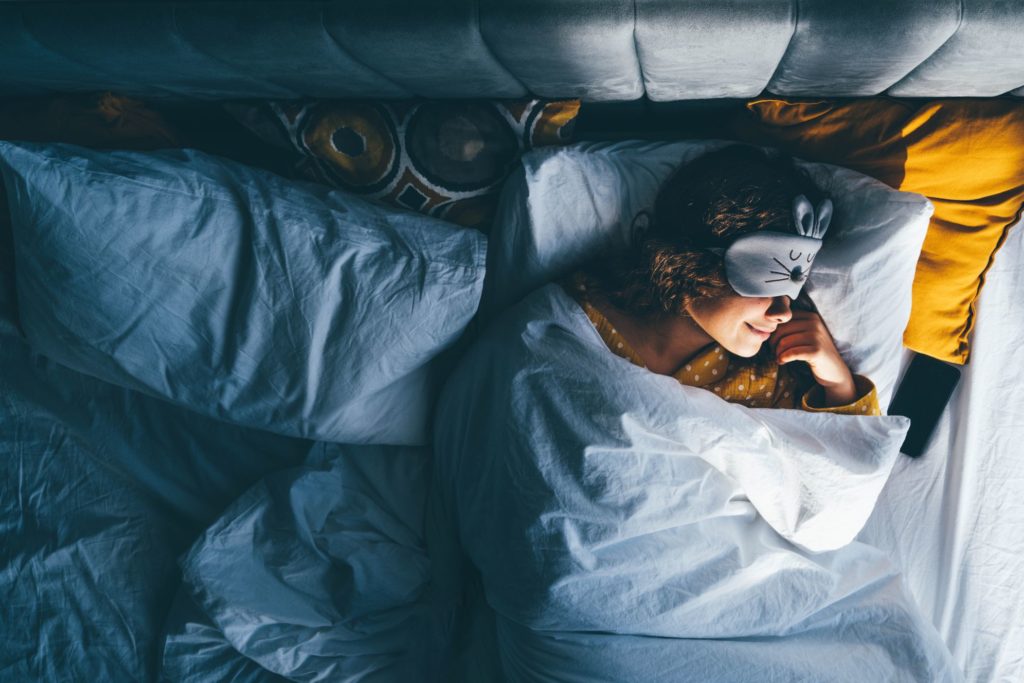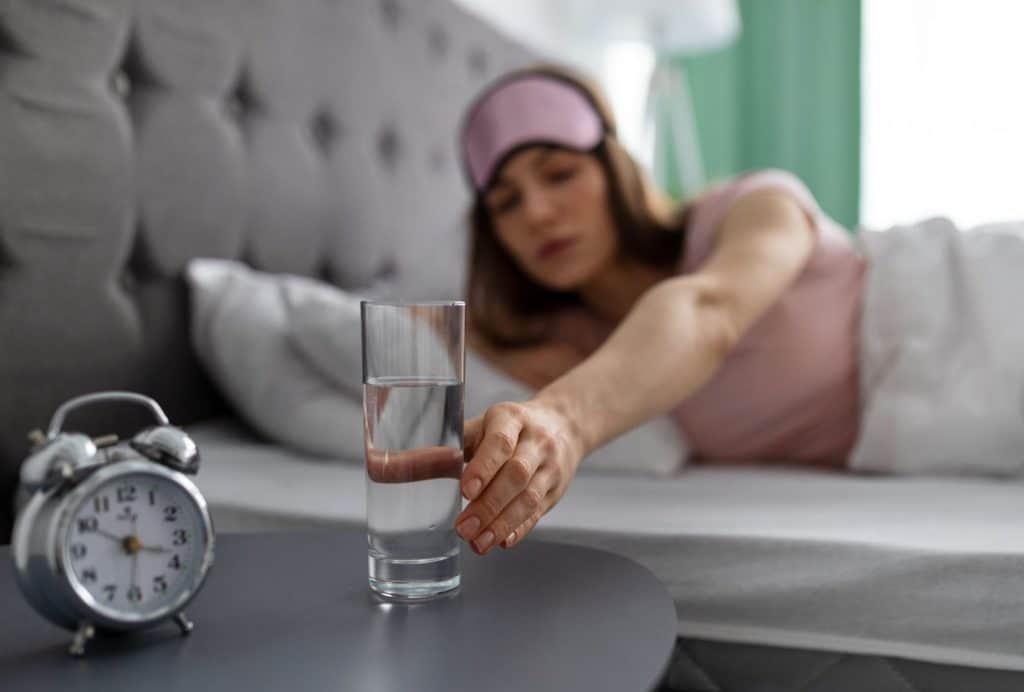After a long hard day, there’s nothing like a stiff drink to settle one’s nerves, right?
Wrong.
People have enjoyed alcoholic nightcaps for centuries as a way to calm themselves down and relax before going to sleep. While alcohol – a depressant – has a sedative effect, it’s also a surprisingly poor choice if you need to relax after a stressful day.
Fortunately, there are vastly more effective ways to unwind before bed, none of which involve an addictive substance. All of them are great for a sober lifestyle, too:
Take A Deep Breath … Or Several
When was the last time you actually thought about breathing? Breathing (for most of us, anyway) comes to us naturally as part of our nervous system. Like blinking, it’s easy to not spend a minute thinking about why or how we breathe. Unlike blinking though, giving a thought or two about breathing can pay off massively.
Focusing on breathing is perhaps the easiest way to calm yourself down. Instead of pouring a drink, make a conscious effort to focus on your breathing (or use a technique like box breathing) and you’ll be shocked how quickly you can calm yourself down – it’s like a reset switch for your entire system.

Find An Alternative Drink
For reasons we’ll explore later in the article, drinking alcohol right before bed is a mistake. But if you do want something to drink, there are plenty of alternatives which are both sober and effective.
Like warm milk, for example. Although the jury is still out whether the tryptophan in milk is a sleep aid, warm milk is still a comforting, soothing drink to enjoy before you go to bed. Other tryptophan-loaded beverages, like tart cherry juice, might also be good choices – a study showed the fruit juice helped older adults with insomnia achieve better sleep.
There’s also a wide variety of teas which can both give you a pre-bedtime ritual and help you get a good night’s sleep. Chamomile, lavender, and valerian root are just some of the teas which promote good sleep.
Write It Out
Research seems to show writing before going to bed can help people both fall asleep faster and gain a better quality of sleep.
It makes sense. Ever have trouble going to sleep because you couldn’t shut your brain off, or because you were worrying about the day’s events and setbacks. Just 15 minutes of writing your thoughts down in a journal – and focusing on the good things that happened during your day – can be enough to change your mindset and give you the peace of mind you need for a good night’s sleep.
If journaling isn’t your thing, you can still explore writing as a way to cap off your day. A study out of Baylor University examined writing to-do lists at bedtime. The researchers found writing a to-do list helped the study’s subjects fall asleep faster.
Find The Right Pose
Although vigorous exercise isn’t really recommended before bedtime, yoga can be a great healthy nightcap that promotes good sleep. Yoga nidra is a type of yoga mostly done lying down. Studies have shown yoga nidra contributes to good, healthy sleep as well.
Yoga is a great treatment for anxiety and stress in general, too.
Listen Carefully
Music can inspire you to get up in the morning, give extra effort in a spin class, and is the reason dance floors exist. Music can also calm you down, too – if you’ve ever heard a bedtime lullaby, you know why.
Studies seem to bear this out. A study conducted in Taiwan found people fell asleep markedly faster when they listened to music before going to bed. Additionally, another study found listening to music lowers cortisol levels in the body – cortisol is widely known as the stress hormone.”
3 Reasons Why A Nightcap Isn’t A Great Idea For Anyone
It’s no mystery why people often choose to have a drink before they go to bed. As a central nervous system depressant, alcohol slows down brain activity, creating a sedative effect that helps some feel relaxed and sleepy.
First, while alcohol can put you to sleep, it’s not necessarily good at keeping you there. Researchers have long studied the relationship between sleep and alcohol, but a lot of the particulars aren’t known. In general, people who drink large amounts of alcohol before going to bed tend to take longer before falling asleep. Plus, as their bodies metabolize alcohol during the night, they also experience poor quality sleep.
Secondly, it’s also suspected alcohol decreases the amount of rapid eye movement (REM) sleep. Our sleep cycles are made up of several cycles of non-rapid eye movement (NREM) sleep with REM sleep. REM sleep tends to start about an hour and a half after you fall asleep and is when most dreaming occurs. Also, REM sleep seems to play a large role in developing long-term memories.
Normally, REM sleep periods last only around 10 minutes. As we sleep, however, those REM periods can last for close to an hour. Alcohol seems to interfere with these periods of REM sleep. While alcohol can make you fall asleep faster, the deep sleep tends to throw off the patterns of NREM and REM sleep. This damages overall sleep quality and can make you sleepless.
Finally, like sleeping pills, using alcohol to sleep can turn into a vicious circle. Alcohol disrupts sleep patterns, which leaves people experiencing the effects of insomnia. During the day, they might find themselves using (or abusing) caffeine and other stimulants to stay awake. At night, that same person again turns to a shot (or glass) of alcohol to wind down…and the pattern repeats itself all over again.
Alcohol also comes with an increased risk of sleep apnea, too.

Like Sober Living, Sober Solutions Work.
Using alcohol as a cure for insomnia (or as a response to a bad day) will eventually lead to addiction. That’s why finding sober, non-addictive cures to problems is so important – not only do they tend to work, but there’s also no risk of addiction.
It’s why so many people in recovery elect to live in a sober home. Being in a community of people who understand and share their goals is a tremendous help in recovery. Not only is everybody working towards a life free from addiction, but they’re also a great sounding board if you’re struggling.
Finding a sober home can be a struggle, though. It’s why we developed SoberLivingNearYou.com. It’s the internet’s largest directory of sober homes. We’ll help you find a place to call home regardless of budget or lifestyle. Contact SoberLivingNearYou.com today to get started!



